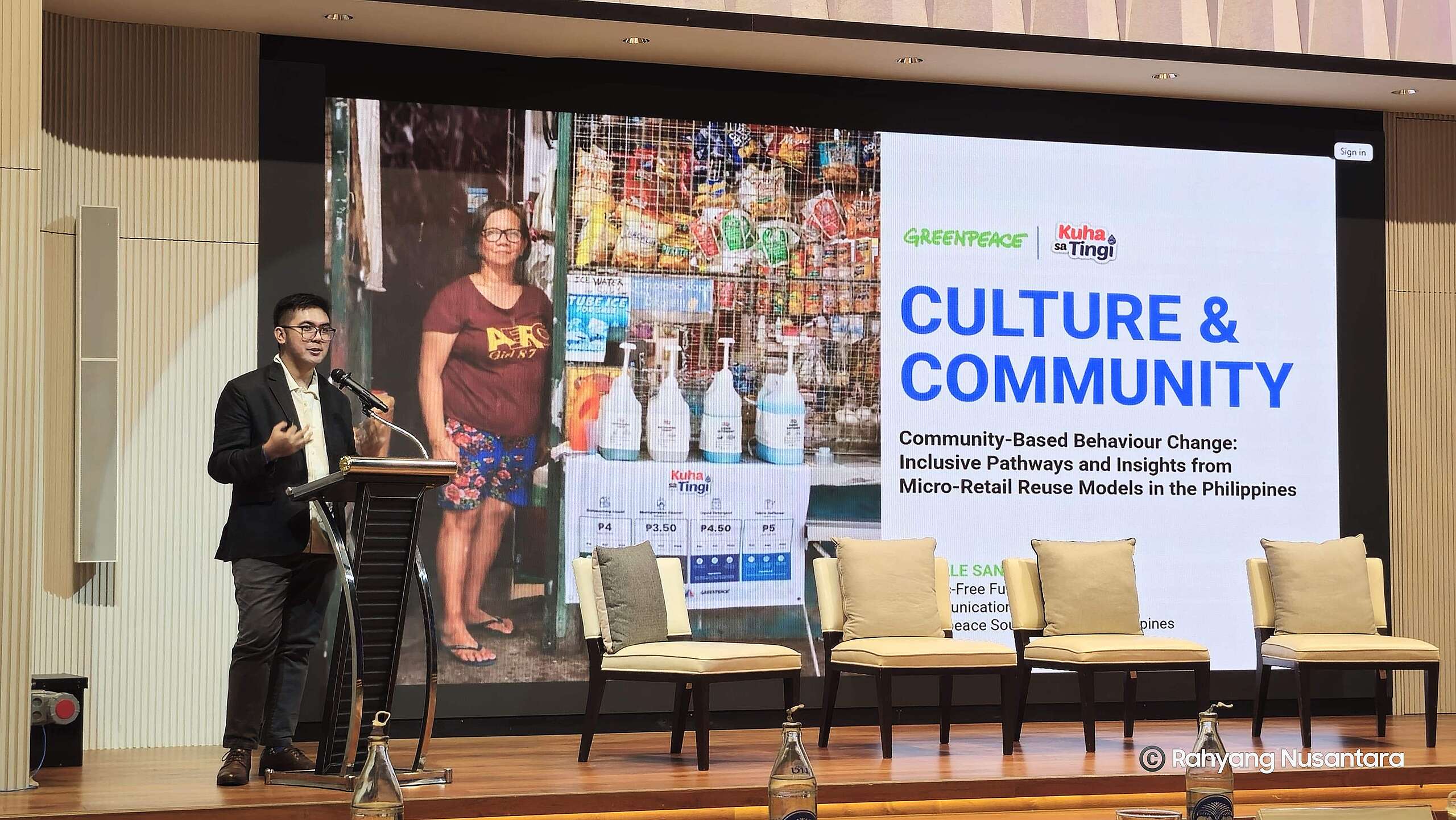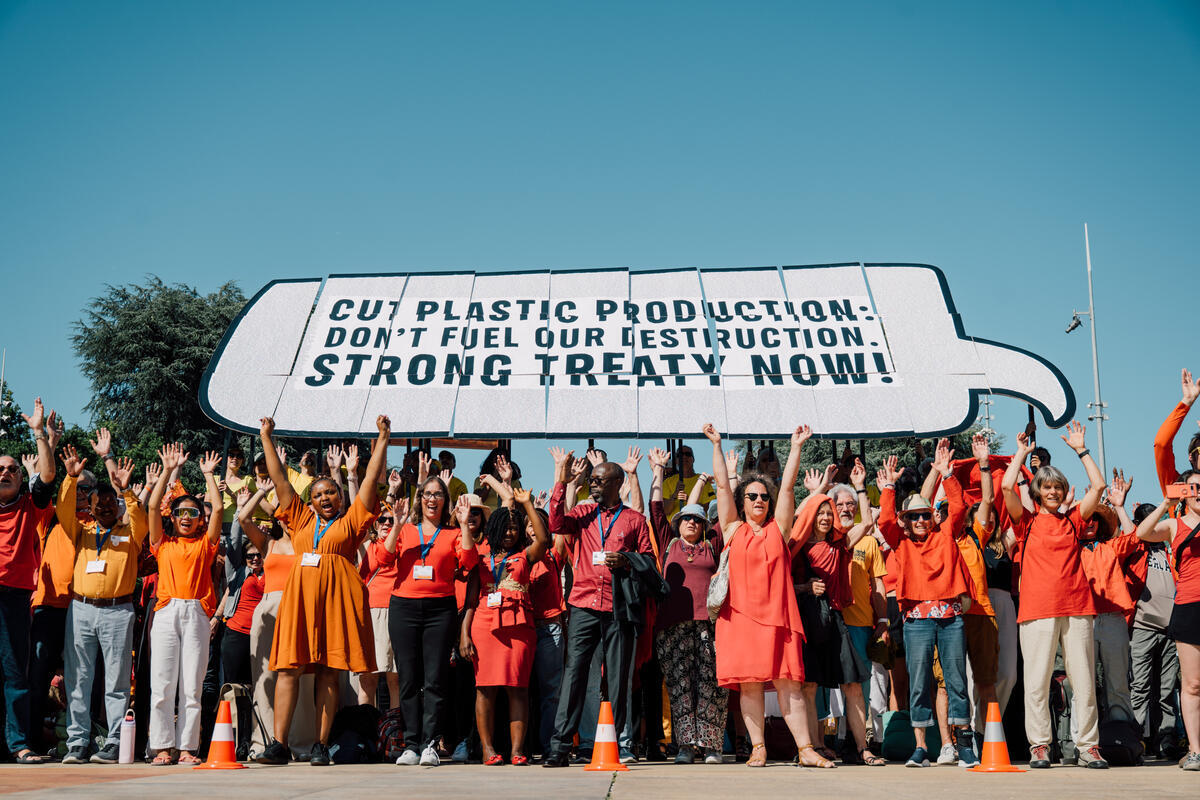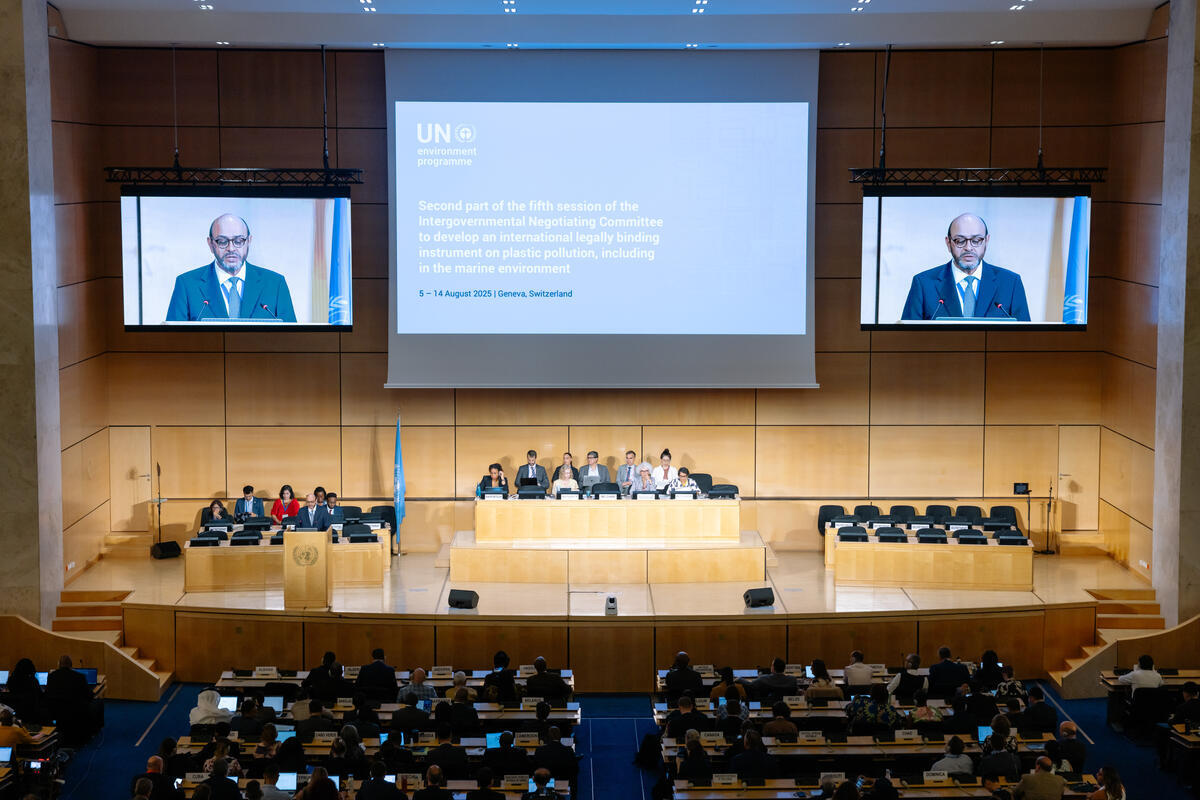Quezon City – Greenpeace Philippines today joined health experts in calling on the government to promote reusable personal protective equipment (PPE) for non-medical use and boost information dissemination on the safety of reusables to counter supply shortages while still protecting Filipinos from environmental and health harms of PPE-related waste.
Health experts from around the world, including Dr. Geminn Louis Apostol, professor and lead environmental health specialist of the Ateneo School of Medicine and Public Health at Ateneo de Manila University, also encouraged the public to practice basic hygiene practices like handwashing and utilize reusable masks, while leaving medical-grade PPEs for healthcare and essential workers.[1]
“While ensuring adequate access to PPE is paramount, the pandemic has exposed how both the medical and nonmedical community have an unnecessary and dangerous reliance on disposable, single-use materials. Widespread use of single-use PPE has resulted in enormous quantities entering waste management streams, contaminating both public spaces and natural environments and creating additional threats to public health and safety [2],” Apostol said
He added: “Inequitable access to PPE and to information about how to stay safe has contributed to the disproportionate rates of infection in poor and minority communities. If medical masks are prioritized for healthcare workers, the general public can use cloth masks as a safe, cost-effective alternative.”
According to a study in Environmental Science & Technology [3], the world is using an estimated 129 billion disposable masks and 65 billion disposable gloves each month during the pandemic. The study finds that not only has this led to widespread environmental contamination, it poses a significant public health risk as this waste serves as a vector for the virus.
Manila alone is poised to produce an additional 280 metric tons of infectious waste a day, equating to 16,800 tons in 60 days [4]. Greenpeace believes that a bulk of this can be avoided with reusable PPEs.
Greenpeace Campaigner Marian Ledesma called on the government to take decisive steps to create a better normal with real solutions that do not pose a threat to Filipinos and the environment.
“Coming after President Duterte’s SONA, where he expressed his wish to see concerted efforts in protecting the environment for the rest of his term, it is imperative that the government act to curb the rise of PPE-related waste. Protecting the environment, public health and the Filipinos’ well being, including ensuring public participation in decision-making, should be cornerstones of our recovery plans,” Ledesma said.
Greenpeace also urges the government to publicly disseminate scientific guidance which can protect communities to ensure that people, especially in densely populated urban areas, are well-versed on hygienic practices, good sanitation and environmentally-friendly alternatives.
Notes to editors:
[1] This statement on PPEs was released weeks after over 130 health experts from twenty countries signed onto a statement assuring retailers and consumers that reusable bags and containers can be used safely during COVID-19. The full list of quotes by health experts on PPE can be found here.
[2] The United Nations has also raised the possibility of additional locally manufactured incinerators to deal with the excess waste from PPE, which would negatively impact air quality for surrounding communities. Communities of colour are disproportionately impacted by pollution, which has exacerbated their already higher rates of COVID-19 illness and death.
[3] https://pubs.acs.org/doi/10.1021/acs.est.0c02178
[4] Managing infectious medical waste during the pandemic. While providing a good estimation of additional medical waste produced during the pandemic, Greenpeace is against ADB’s recommendation to use incineration as a means of management because of documented negative impacts of these facilities on public health, environment, economy, and the climate. Environmental groups recommend healthcare facilities follow the existing best practices for management of infectious waste, as advised by the WHO, due to COVID-related waste being no different from other infectious waste.
[5] Photos available for use.
Media contact:
Angeli Cantillana, Communications Campaigner, Greenpeace Southeast Asia – Philippines
[email protected] | +63 998 595 9733




Discussion
Hi! My concern is the use of plastic covers for the modules to be distributed for the students this coming school year. It worries me the vast amount of plastic waste it will make. Surely, this will be another source of environmental pollutant.